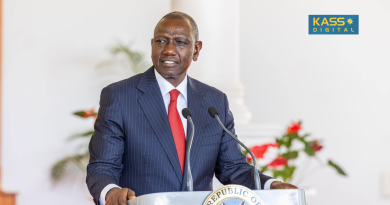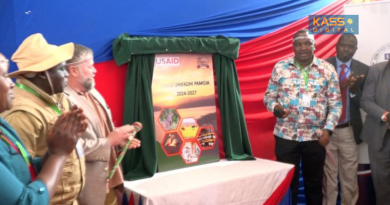COP28 Health Day Addresses Global Health Risks Amid Climate Migration Ramifications in Kenya
By Chemtai Kirui | phillykirui@gmail.com
DUBAI – In an effort to address the escalating health risks posed by climate change—on physical, mental, and community health, the U.N. COP28 climate summit held its first ‘Health Day’ today, with discussions on the role of climate action in fortifying global health resilience.
Healthcare professionals, activists, and representatives from countries and organizations, who campaigned to have the health conversation at Climate talks, called it a ‘historic moment’, that is well overdue.
“Although the climate crisis is a health crisis, 27 COPs have been and gone without a serious discussion of health,” said Tedros Adhanom Ghebreyesus, the Director-General of the World Health Organization. “For too long health has been a footnote climate discussion. No more.”
Ghebreyesus said that the rise of direct impacts of climate change on health including air pollution, floods, droughts, storms, extreme heatwaves, and wildfires is severely impacting the vulnerable community the most.
This comes after the Executive Director of the Global Fund to Fight AIDS, Tuberculosis, and Malaria, Peter sands, told Kass media that, Climate change is triggering climate-induced migration, leading to spread of infectious diseases.
“We see there being a real risk of displaced people having a higher vulnerability to both TB and HIV. The challenge in all this is how do we maintain continuity of service?” Sands said.
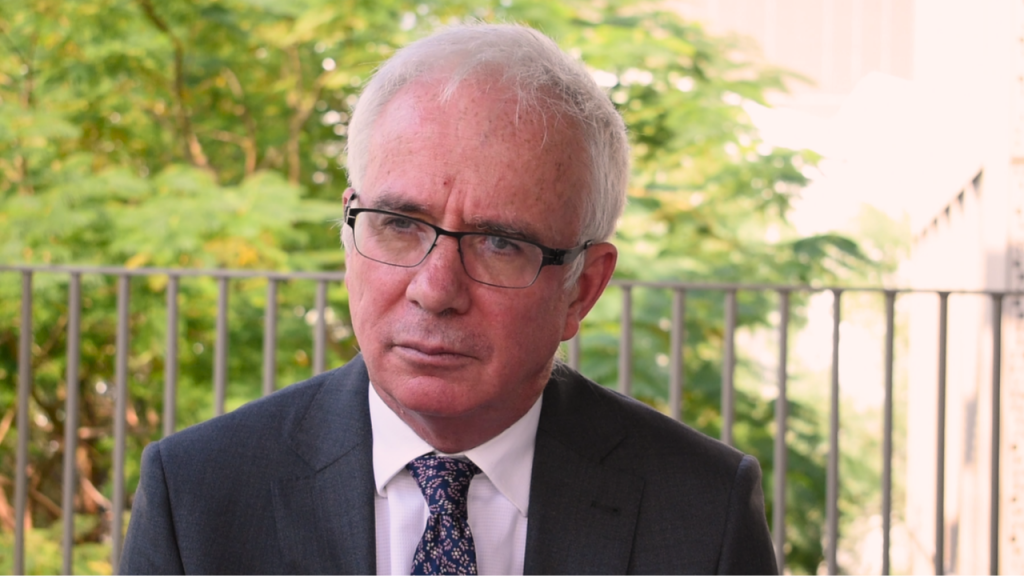
Drawing attention to the historical pattern where tuberculosis follows mass movements of people, thriving in conditions where individuals are in close quarters, Sands said: “It’s one thing if you have health facility and people living in a stable community, it’s a different thing if those people are moving, and you have to provide clinics out of the back of a truck or a van with diagnostic services that are also mobile.”
Climate-Induced Migration at Home
“Kenya is transitioning from its worst recorded drought season— the La Niña episode that began in 2020, —to the current influence of El Niño, combined with other climatic factors. This has rendered areas in the Arid and Semi-Arid lands (ASALs) uninhabitable, leading to hundreds of thousands of people becoming internally displaced, undermining livelihoods and crucial infrastructure.
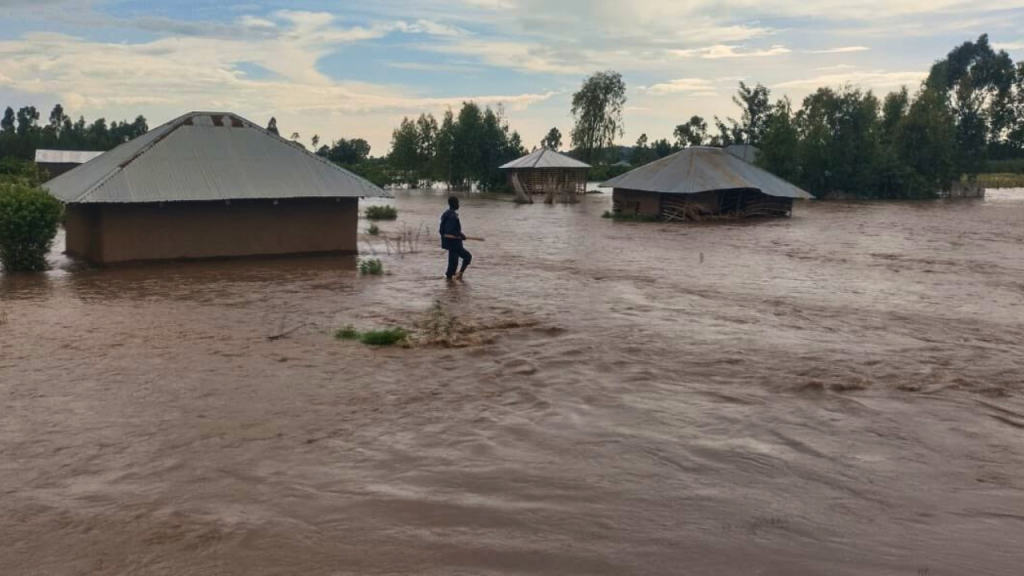
‘At least 187,000 children in the country were internally displaced due to climate shocks by end of 2022, marking a stark increase from the 27,000 children affected by similar crises in 2021,’ according to the Internal Displacement Monitoring Centre.
The recorded figures stand as the highest annual count of new displacements resulting from climate disasters in the country, even as the number continues to go higher.
Since early November, Kenya has faced severe flooding, leading to loss of lives, property damage, and a burgeoning humanitarian crisis, with United Nations Office for the Coordination of Humanitarian Affairs (OCHA), indicating that El Niño-induced flooding has displaced more than 122,000 people already.
“We are dealing with a situation where entire communities have either been submerged or marooned. Roads and other critical infrastructure have been cut off, disrupting the delivery of vital supplies. We need to urgently provide food, clean water and medical supplies to avoid a humanitarian catastrophe,” said Dr. Ahmed Idris, Secretary General, Kenya Red Cross Society, while launching an emergency appeal for Ksh 3.1 billion.
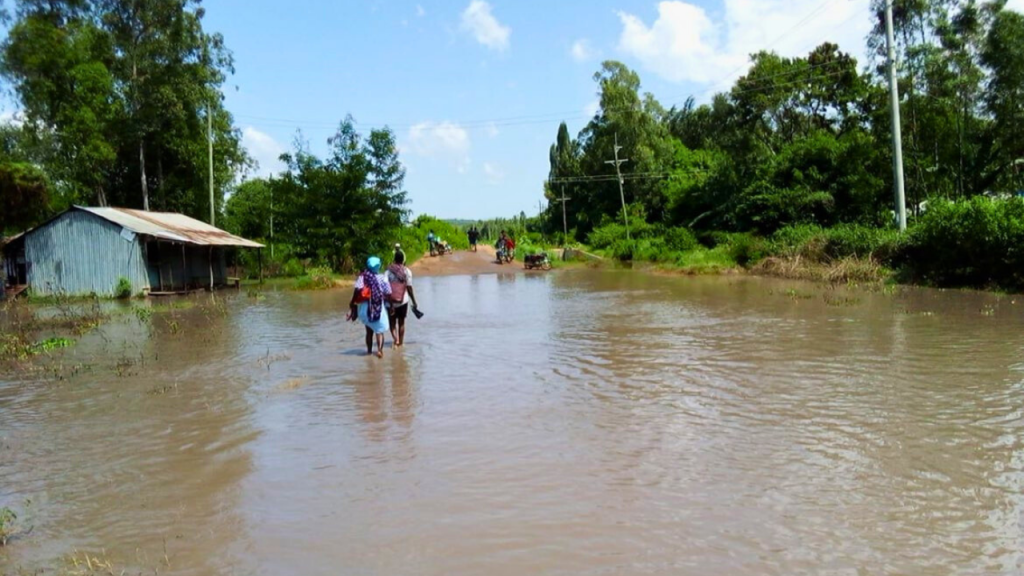
Besides Human Health, livestock and wildlife in the country, have also been severely impacted by the shifting Climate conditions.
The World Health Organization is saying that the health and humanitarian impacts of climate change is projected to worsen as weather becomes less predictable and climate shocks more extreme, adding that; ‘Areas with weak health infrastructure – mostly in developing countries – will be the least able to cope without assistance to prepare and respond.’
Climate and Health activists are raising alarm saying If greenhouse-gas emissions continue an upward trajectory, accelerating global warming and amplifying climate impacts, more vulnerable people will continue to be displaced.
Calls from the ‘Health Day’
The Health Day at COP28, which had about 50 Health ministers in attendance, featured impassioned calls for urgent action on climate change.
Amy Pope, the Director General for International Organization for Migration (IOM), called on the world leaders to embrace mobility as an adaptation strategy to climate change, saying that last year saw a record 32.6 million internal displacements due to disasters.
“We join the chorus of voices at COP 28, calling for urgent action, that must put affected people at the heart of every solution and decision,” Pope said, adding that, building the resilience of countries and people should be a common priority.
Alice Bell, Head of Policy, Climate and Health, at Wellcome Trust, noted that currently, a significant portion of climate and health research is conducted in global North countries, neglecting marginalized communities. “We must equalize we have to change how science is done. We can’t have science as usual if we’re going to tackle the climate crisis.”
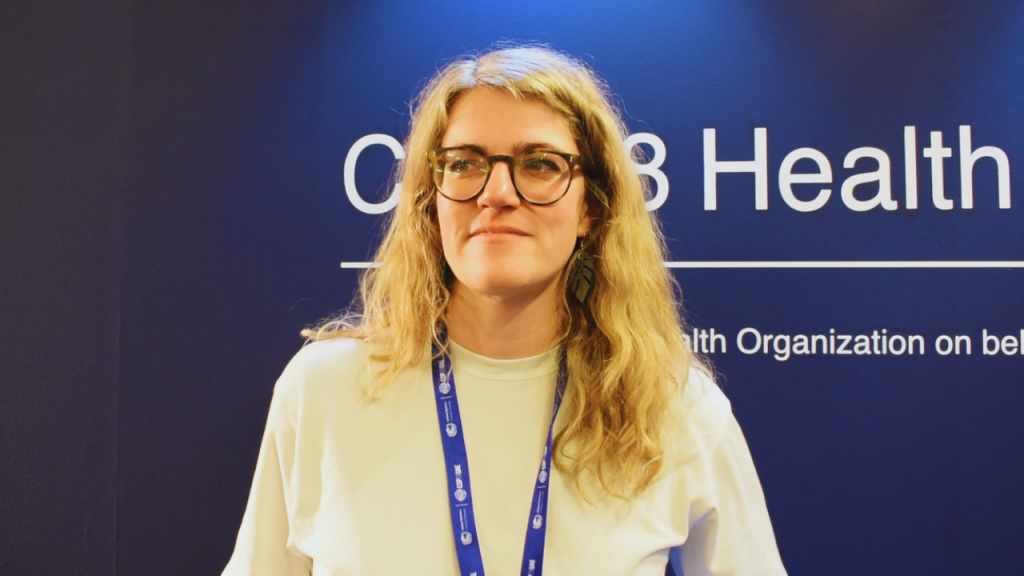
She said that Welcome Trust is spending about 100 million a year on climate health research. “There is a focus on reevaluating how and where this money is spent, aiming to address the inequality in research distribution.”
Peter Sands, the executive director of Global fund said policymakers need to prioritize funding and proactive strategies, “to protect those most at risk.”
“The health Day serves as a stark reminder that climate change is not just a future threat—it’s a present danger affecting lives worldwide, particularly impacting young children in impoverished communities, and hence the need to act with a real sense of urgency.” Sands said.
Figures from the Climate Health Declaration, announced by the United Arab Emirates from 124 countries, put the commitment amount at $1 billion (USD) or KES 153.4 billion, bolstering the global response — with a focus on transforming health systems, addressing environmental health factors, and safeguarding communities and vulnerable populations through both mitigation and adaptation programs.
Khumbize Kandodo Chiponda, the Minister of Health in the Government of Malawi, said at the COP28 Health Day Opening Session that prioritizing investment in solutions to protect people’s health and lives in the face of climate change and adapting to its impacts is no longer just a matter of necessity.
“We require new funding and fresh investments in the health sector—investments that are accessible and readily available. Sometimes, investments exist on paper but are not easily accessible,” she said.
While advances such as the Declaration is seen as a plus for the Climate-Health nexus, concerns persist about the inadequacy of current commitments to prevent catastrophic outcomes. Political inaction, particularly in healthy democracies with populist leaders, poses a growing threat.
“We cannot adapt our way out of a two degree or a three-degree global temperature increase,” said Shweta Narayan, an International Climate and Health Campaigner, in the opening session. “Our bodies, communities and ecosystems bear the scars of a planet pushed to its limits.”
She said that the Climate Action approach should move beyond treating just the direct health consequences to demanding both political action and accelerated finance for a fossil fuel free future.

“We are paying the price of a society’s addiction to fossil fuels and so, our solutions must focus on prevention and addressing the root cause and accelerate finance for a fossil fuel free future.” Narayan said.
This story was produced with support from Internews’ Health Journalism Network.


